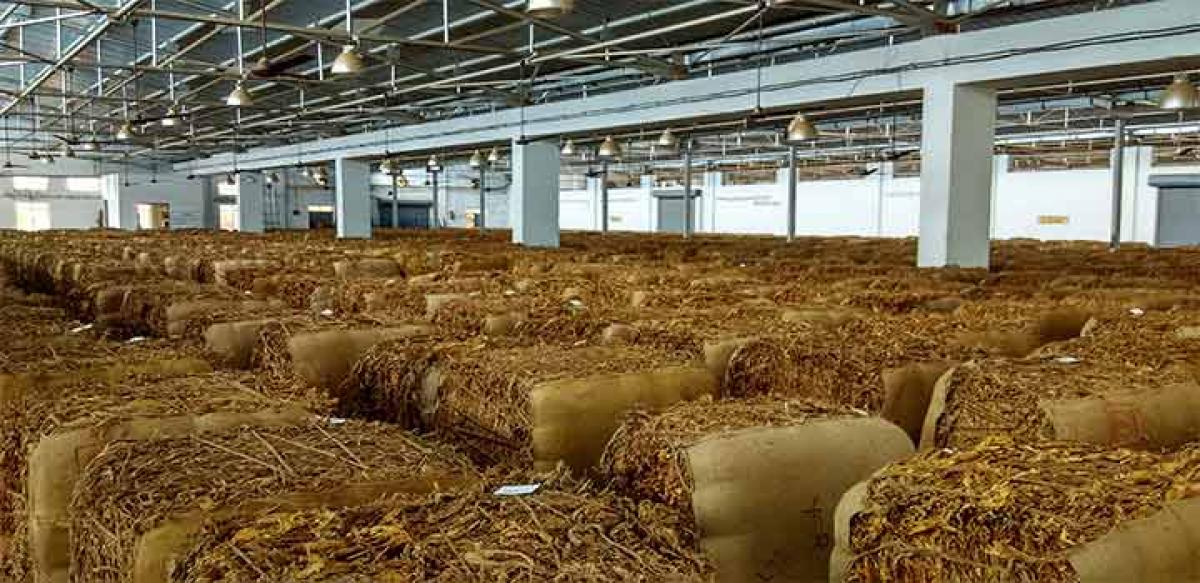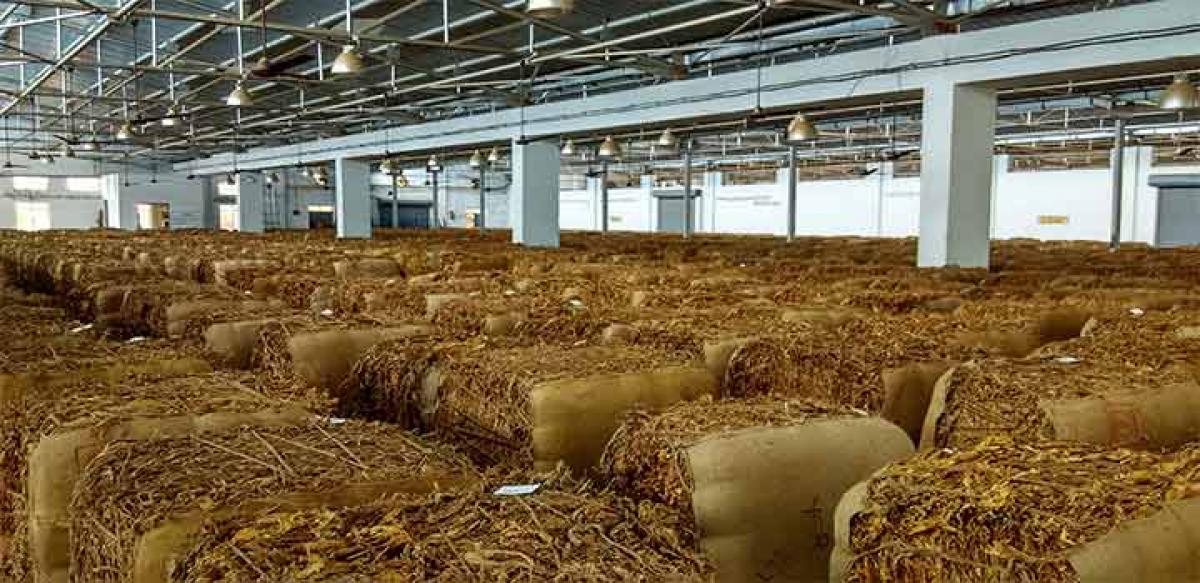Live
- Govt unveils ‘Jalvahak’ to boost inland waterways
- List of criminals: Delhi BJP chief on AAP panel of 38 candidates
- PSBs in India clock record Rs 1.41 lakh crore in net profit in FY24
- Telangana Government Announces Key Development Plans: Bhatti Vikramarka
- Crackdown on illegal poppy farming in Manipur: Assam Rifles destroyed 6,228 acres in 5 years
- South Korea's ruling party leader cancels press conference amid calls for resignation
- AIADMK's big meet discusses 2026 polls, prospective alliances
- BJP questions Congress-Shiv Sena (UBT) alliance over Aaditya Thackeray's Savarkar-Nehru remark
- Maha Oppn to boycott customary CM tea meet, cites rising farmers' distress, atrocities against Dalits
- Mikheil Kavelashvili is new Georgian President
Just In

The greed of farmers to produce more tobacco without authorisation and inability of the Tobacco Board to educate farmers to limit the cultivation are the reasons for the deaths of tobacco farmers.

Ongole: The greed of farmers to produce more tobacco without authorisation and inability of the Tobacco Board to educate farmers to limit the cultivation are the reasons for the deaths of tobacco farmers.
The decision of the government to offer Rs 20 extra for each kg of tobacco is going to save farmers to an extent.In the past three months, six tobacco farmers ended their lives as they see no hope of relief from the government.
The Tobacco Board permitted farmers to cultivate tobacco up to 172 million kg in 2014-15. Generally, farmers cultivate about 20 per cent more than authorised.
If there is demand, the Board purchases the excess crop by imposing a fine of Rs 200 per quintal and 15 per cent of price per kg. In 2014, as the weather condition was favourable, tobacco farmers received an average price of Rs 110 per kg for all grades.
This attracted the farmers to go for authorised licenses. During 2014-15, the farmers produced 192 million kg tobacco, when they are authorised for only 172 million kg.
The production of low grade tobacco, which has been less than 10 per cent every year, is more than 25 per cent due to adverse weather conditions and untimely rains this year.
When the purchase commenced at auction centres, traders offered an average price of Rs 110 for bright grade, Rs 85 for medium grade and Rs 60 for low grade tobacco.
As the quantity of low grade tobacco is high, the farmer incurred at least Rs 3 lakh loss for each barn. A senior official of the Board said, “We are repeatedly requesting farmers to limit the cultivation as the market for tobacco is decreasing every year.
During meeting with Union Minister Nirmala Sitaraman, the buyers agreed to offer an average price of Rs 109 to 114 for bright grade, Rs 97 to 102 for medium and Rs 62 to 67 for low grade tobacco.”
Nagaboyina Ranga Rao, general secretary of Andhra Pradesh Tenant Farmers Association said, “As the farmers are in a weak position, the traders are exploiting them offering very low price or rejecting the produce.”
Bollineni Krishna Rao, who killed himself on September 11, owned 18 acres. He took 12 acres more on lease and two barns on rent in addition to his own barn. With loans from the bank, friends and family, he invested nearly Rs 20 lakh.
He produced nearly 130 quintals of tobacco, little more than he was authorised and sold about 95 quintals in the auction centres at an average price of Rs 100. The rejection of 35 quintals by the traders hit his mental strength.
As the pressure of the lenders built up, he committed suicide. Ranga Rao said, “With 120 million kg of tobacco exported to 40 plus countries, the government gets Rs 30,000 cr as excise duty.
Another Rs 1500 to 1800 cr would be added as foreign exchange. The Board has nearly Rs 500 crore as fund collected from farmers. The amount should be utilised for the benefit of the farmers in situations like this.
However, the Board never takes such steps to save farmers from crisis.”Karanam Balaram, president of Telugu Raithu, said, “The compensation amount would be credited to the farmer along with the price paid by the buyer, and there would be no delay.
The government agreed to pay that Rs 20 extra to the farmers for the authorised and unauthorised crop. But, the penalty on the unauthorised crop would continue, as it is a disciplinary action against farmer for violating rules.”
By:Naresh Nandam

© 2024 Hyderabad Media House Limited/The Hans India. All rights reserved. Powered by hocalwire.com







